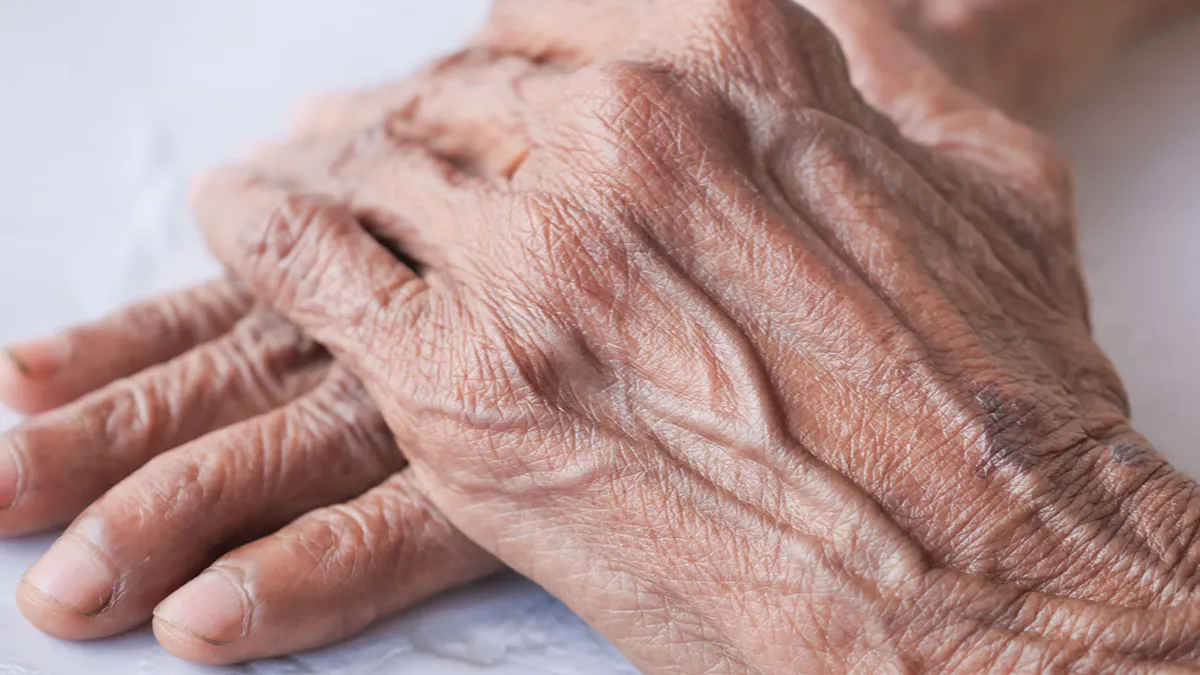New tool aims to fight Alzheimer’s using AI technology
Vik Chandra, CEO of uMETHOD, talked with Fox News Digital about how his company’s AI tool, RestoreU, which is helping physicians pinpoint better treatment plans for their dementia patients.
Alzheimer’s is a disease that impacts millions and heavily affects the brain and memory.
Alzheimer’s impacts more than 6 million Americans, according to the Alzheimer's Association. It is mostly seen in people of older age. In fact, about one in nine people over the age of 65 have the disease, according to the source. As of now, there is no cure for Alzheimer's.
Alzheimer’s typically comes in stages and gets worse over time. Every case is different, and some face a faster rate of progression than others.
AI TOOL GIVES DOCTORS PERSONALIZED ALZHEIMER'S TREATMENT PLANS FOR DEMENTIA PATIENTS
The disease is a form of dementia.
Those in early stages may experience small, mild symptoms while those with a more severe case will need around the clock care.

More than 6 million Americans live with Alzheimer's. (iStock)
Different organizations break up the stages of Alzheimer's in different ways. Some, like the Alzheimer’s Association, break the stages down into three categories; early-stage (mild), middle-stage (moderate) and late stage (severe).
The disease can also be broken down further. Some split up the stages into preclinical Alzheimer’s disease, mild cognitive impairment (MCI) due to Alzheimer’s disease, mild dementia due to Alzheimer’s disease, moderate dementia due to Alzheimer’s disease and severe dementia due to Alzheimer’s disease.
The disease is not "one size fits all." The severity of symptoms and the timing of noticeable symptoms will differ from person to person.
It is important to note that everyone is affected by the disease differently. The severity and timing of the symptoms are going to be different on a case by case basis, making it difficult to tell what stage of Alzheimer's a person is in.
These stages are a guideline for some common symptoms that may occur. Some may not experience certain symptoms at all, others may experience symptoms from different stages at the same time. For some, symptoms may progress quickly, while others may live with mild symptoms for years. The disease is not "one size fits all."
EARLY ALZHEIMER'S DISEASE COULD BE DIAGNOSED THROUGH EYE EXAMS, NEW STUDY SUGGESTS
The severity of the symptoms and when the symptoms are noticeable will differ from person to person.
Here are the broader three stages of Alzheimer’s disease and symptoms that could show during each stage.
- Early stage (mild)
- Middle-stage (moderate)
- Late stage (severe)

Alzheimer's heavily impacts older individuals. (iStock)
1. Early stage (mild)
Someone who is experiencing the early stages of Alzheimer’s will likely still be able to complete daily functions on their own and engage in social activity. Those in this stage can typically still do things like drive and go to work.
There are some symptoms that come in this stage, which mostly have to do with slight memory loss. Individuals in this early stage may find themselves struggling to think of a certain word. They may also have a hard time recalling someone's name or recent events.
Individuals who experience the early stages of Alzheimer's may start to experience difficulty performing tasks in social situations or at work.
Those in this stage may forget material they just read and find themselves losing objects more frequently. They also may start to experience difficulty performing tasks in social situations or at work. In this stage, they could also find themselves struggling with staying organized and handling money/bills.
2. Middle-stage (moderate)
For many, this is the stage that lasts the longest. People with Alzheimer’s can be in this stage for many years, according to the Alzheimer’s Association. During this stage, individuals are going to need a greater level of care than when they were in the first stage.

People in the later stages of Alzheimer's require care to help them perform daily tasks. (iStock)
During this stage, the individual may experience mood changes, act in unexpected ways, confuse words and have difficulty performing daily tasks on their own.
In this stage, people may also experience trouble recalling memories from their past and information about themselves. They could find themselves confused about where they are and forget the names of people close to them.
They may also have a hard time learning new things or performing multistep tasks.
CLICK HERE TO SIGN UP FOR OUR LIFESTYLE NEWSLETTER
The individual will likely need help with simple tasks, like getting dressed. The person may also notice changes in sleep patterns.
People with moderate Alzheimer’s disease may find themselves getting lost and also experience both personality and behavioral changes.

Difficulty sleeping is one of the symptoms of Alzheimer's. (iStock)
3. Late-stage (severe)
When an Alzheimer’s patient reaches the severe stage of the disease, he or she will need around the clock care, according to the Alzheimer’s Association.
CLICK HERE TO GET THE FOX NEWS APP
Some of the symptoms in this stage include not being able to have conversations and the inability to control movement. Individuals will also lose awareness, have difficulty communicating and will be vulnerable to infections.
Another common symptom at this stage is losing control of the bladder and bowels.






















